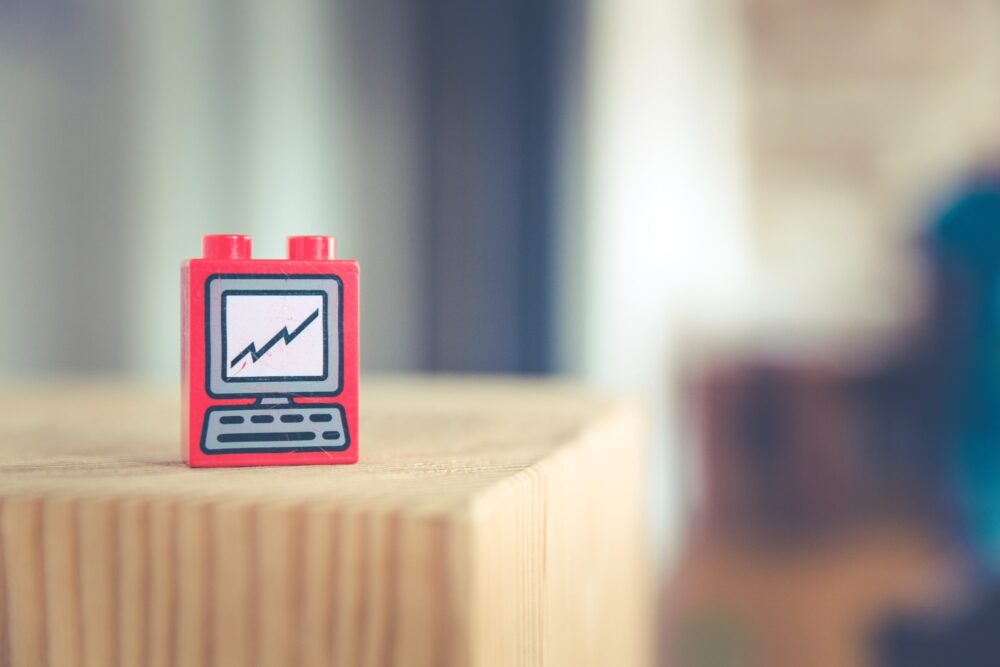Developing socio-emotional intelligence is key to our wellbeing and effective practice


Camila Devis-Rozental, Principal Academic, Bournemouth University, UK
This article explores the notion of socio-emotional intelligence (SEI) as an important aspect for Early Years educators.
What is socio-emotional intelligence?
Socio-emotional intelligence (SEI) is a term that I developed as part of my research on trainee Early Years practitioners (Devis-Rozental, 2017). SEI can be defined as:
<Q>‘the ability to integrate feeling, intuition and cognition to acknowledge, understand, manage, apply and express our emotions and social interactions at the right time, for the right purpose in the right context and with the right person. Its overall aim is to have a positive impact on our environment and to engage ourselves and others to be present, authentic and open; in order to achieve a sense of wellbeing and to build effective relationships in every aspect of our lives.’ (Devis-Rozental, 2017, p. 166)<Q>
It is distinct from other definitions of social intelligence and emotional intelligence, as it considers the positive impact that we can have on our environment, others and ourselves, and sees emotions and social aspects as being of equal importance. In fact, the expression of emotions is socio-culturally constructed and dependent on our environment. At the same time, the way in which we socialise and understand the world around us is intrinsically linked to our emotion recognition and expression.
The main areas of SEI that I have identified, which in themselves are intertwined, can be seen in Table 1.
Table 1: Areas of SEI (Devis-Rozental, 2018, 2020)
| SEI area | Links to | Definition |
| Self-awareness
|
Reflection
Insight Mindfulness Self-knowledge Self-image Contemplation Self-discovery Gratitude |
Our ability to understand how we feel and behave in different situations; being able to identify our strengths and weaknesses and how to improve them |
| Motivation
|
Engagement
Passion Purpose Resilience Incentive Encouragement |
The way in which we use our deepest feelings and emotions to get us where we want
|
| Managing our emotions
|
Emotion recognition
Labelling emotions Emotional literacy Self-management Self-regulation |
The way in which we react to situations and how we manage our emotions in different contexts
|
| Self-esteem
|
Confidence
Self-compassion Self-care Self-kindness Identity Self-regard Self-respect |
The way in which we see, care for and value ourselves
|
| Social awareness
|
Sense of belonging
Cultural awareness Equity DiversityThe recognition of individual differences in terms of race, InclusionAn approach where a school aims to ensure that all children Rapport Building relationships
|
The way in which we see the world around us, how we manage relationships and respond to external stimuli; understanding social cues
|
| Empathy
|
Kindness
Consideration Compassion Responsiveness Goodwill Generosity Sensitivity Connection |
Our ability to sense, understand and react to another person’s feelings |
Table 1: Areas of SEI (Devis-Rozental, 2018, 2020)
SEI in Early Years practice
SEI is key in Early Years, as children are developing their own while navigating the world and learning from those around them. Early Years educators are particularly familiar with these, as personal, social and emotional development (PSED) is one of the prime areas identified to build a foundation for children’s learning and thriving (DfEDepartment for Education - a ministerial department responsi, 2021). With a greater focus on the mental and socio-emotional wellbeing of children, it is key that educators are well prepared in these areas to support the children in their care.
Training has traditionally focused on children and how educators can support them in developing their personal, social and emotional skills. This is important, as there are key aspects and activities that will enrich an Early Years environment through research-evidenced practice. However, training or support for educators to develop their own socio-emotional intelligence is scarce. This presents a problem, since children, through social learning, pick up the attitudes and behaviours that they see around them. Consequently, it is key that educators have the time and space in which to develop their own SEI skills. Doing so will be beneficial to their practice, as they will be able to support children effectively and role-model the prosocial behaviour that they want children to develop, helping it to flourish.
Personal development in the times of COVID-19
Developing SEI can have a positive impact on educators’ wellbeing. This is important in the current climate, as Early Years settings might be more emotionally charged than usual due to people’s worries and uncertainty. This may have an effect on the way in which educators manage their own emotions and their capacity to remain positive, motivated and engaged and, over time, this can impact on their sense of self. Consequently, the idea of developing SEI to have a positive impact on educators’ own wellbeing can help them to navigate COVID-19.
SEI can be developed, as it isn’t fixed. Through neuroplasticity (Balbernie 2001) – the remarkable ability that our brain has to develop new neuropaths based on experiences – educators can develop their SEI. This takes time and needs to be approached with consistency, discipline and a growth mindsetThe theory, popularised by Carol Dweck, that students’ bel (Dweck, 2006; Linley, 2008), by developing daily habits that, over time, become part of our way of being.
Developing SEI
There are many ways in which to develop SEI. The main thing is to get to know ourselves well so that we can identify our strengths and weaknesses. One way in which to achieve this is by completing the SEI self-assessment questionnaire (Devis-Rozental, 2020, pp. 25–27). This is a simple tool created to get individuals to reflect on their SEI and to identify their strengths and the areas needing development. It asks a series of questions and then groups the answers into the areas of SEI identified in Table 1. After completing the questionnaire, individuals are encouraged to think about these areas and how they are going to continue developing them to increase their SEI. The questionnaire is not a psychometric test – just a prompt to learn about ourselves
Practical ideas for developing SEI
The following practical ideas can be adopted with the intent of developing SEI. These are research-informed, easy-to-integrate activities, and their benefits for wellbeing and developing a positive sense of self can be powerful. The key is consistency and patience as it will take time to build these attributes, because, just as a muscle, the brain must be exercised daily to gain the most out of these activities in the long term.
Starting a reflective journal
Reflection in and on action is a key aspect of Early Years practice, so educators should be familiar with the concept. Reflecting on our own experiences and the way in which we react may not be as familiar, but it is a great way to develop a better understanding of ourselves. Starting a reflective journal, where we can explore these situations without constrains over a period of time to identify patterns of behaviour based on a given stimuli, can be very beneficial. Once we know what our triggers are, we will be able to pre-empt them in order to have a better response. Reflective journals can be developed in many ways; they can have quotes as prompts to reflect or space for narratives. Journals can even have areas on which to draw for sense-making (Scott, 2021). This type of drawing can help us to make sense of situations and structure our thoughts. When used to delve into our emotions, it can bring positive change and ‘cause surfacing and externalisation of issues that may not be otherwise acknowledged’ (Scott, 2021, p. 43), thus making us more self-aware.
Practising self-compassion
Being kind, caring and compassionate towards ourselves is key to developing self-esteem, confidence and resilience. According to Germer (2009), these are some effective ways in which to develop self-compassion:
- practising mindfulness through non-judgemental observation of our thoughts, ideas and actions
- practising self-care routines daily
- practising self-forgiveness – we all make mistakes
- meeting your daily experiences with kindness
- trying to avoid comparing yourself to others
- trying to avoid seeking perfection – instead, look for development
- trying to avoid overthinking or over-doubting yourself.
Developing a positive mindset
A positive mindset is an attitude that focuses on the good things and looks at the positive aspects of life. It is not about always being happy, but about reframing negative situations and outcomes as opportunities for growth. People that are positive are better at managing situations, and as positive energisers (Cameron et al., 2003), they uplift and motivate others with their behaviour. Developing a positive mindset requires discipline and consistency. Some research-evidenced ways in which to develop it are:
- <BL>practising gratitude by being specific in identifying what we are grateful for
- practising positive self-talk by telling ourselves nice things, identifying our strengths, talents and skills – a good mantra is not to tell yourself anything that you wouldn’t tell another person because it would make them feel bad
- savouring the moment by being present and acknowledging the good things around us
- daily laughter by playing, watching or listening to something funny that makes us laugh out loud.<BL>
Practised daily, these activities may rewire our brain and release feel-good hormones such as oxytocin and endorphins, while reducing cortisol and therefore stress. Over time, these activities will boost our immune system and our mood and help us to feel good, thus improving our wellbeing, resilience and motivation.
Learn about learning for your benefit
Knowledge increases confidence (Devis-Rozental, 2018), and metacognition – which is thinking about thinking/learning about learning – can help us to develop SEI. Perikova and Byzova (2019) identified the fact that metacognitive awareness is related to high levels of socio-emotional intelligence. Educators have the advantage of being experts on how people think and learn through their extensive training and practice. This presents a great opportunity, where they can identify what works for them and how they learn best, but also an opportunity to identify and understand other people’s emotions, therefore improving empathy and social awareness. The important thing here is to shift the focus on children’s metacognition and for educators to reflect on their own, as they are learning about learning.
Emotional check-ins
During the day, stop and check how you are feeling; try to identify and label that emotion. This is something that we encourage children within Early Years settings to do. Understanding our emotions and how we are feeling at a given time is a key aspect of SEI. Being able to identify and label those feelings can help us to understand ourselves better. Practising it for our benefit can be useful for developing our self-awareness and improving the way in which we manage our emotions. Research by Lieberman et al. (2007) found that verbally labelling negative emotions can be useful for regaining control and moving on more easily from difficult situations.
Conclusion
Focusing on developing SEI and role-modelling the prosocial attitudes and behaviours that we want children to learn before they start school are important aspects of Early Years practice. However, this may be difficult if educators themselves don’t have these skills. Therefore, providing opportunities for educators to develop their SEI should be prioritised, as this can have a positive impact on their wellbeing and overall practice.
References
- Balbernie R (2001) Circuits and circumstances: The neurobiological consequences of early relationship experiences and how they shape later behaviour. Journal of Child Psychotherapy 27: 237–255.
- Cameron K, Dutton J and Quinn R (2003) Positive Organisational Scholarship. San Francisco: Berrett-Koehler.
- Department for Education (DfE) (2021) Statutory framework for the early years foundation stage: Setting the standards for learning, development and care for children from birth to five.
- Devis-Rozental C (2017) Developing socio-emotional intelligence in early years scholars. DProf Thesis, Bournemouth University, UK.
- Devis-Rozental C (2018) Developing Socio-Emotional Intelligence in Higher Education Scholars. London: Palgrave Macmillan.
- Devis-Rozental C (2020) Socio-emotional intelligence: A humanising approach to enhance wellbeing in higher education. In: Devis-Rozental C and Clarke S (eds) Humanising Higher Education: A Positive Approach to Enhancing Wellbeing. Cham: Springer, pp. 18–34.
- Dweck CS (2006) Mindset: The New Psychology of Success. New York: Random House.
- Germer C (2009) The Mindful Path to Self-Compassion: Freeing Yourself from Destructive Thoughts and Emotions. New York: Guilford Press.
- Lieberman MD, Eisenberg NI, Crockett MJ et al. (2007) Putting feelings into words: Affect labelling disrupts amygdala activity in response to affective stimuli. Psychological Science 18(5): 421–428.
- Linley A (2008) Average to A+: Realising Strengths in Uourself. Coventry: CAPP Press.
- Perikova E, Byzova VM (2019) Identifying Emotional Intelligence and Metacognitive Awareness among University Students. International Conference on Research in Psychology, March 7–9, 2019, London, UK.
- Scott C (2021) Arts for health: Drawing. Bingley: Emerald Publising.










